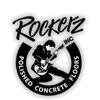With 2017 in full swing, the new year brings new considerations, materials and markets for commercial flooring. With a construction landscape that is always changing as new technologies replace old ones, it’s important to stay up-to-date on considerations for commercial flooring to ensure any project stays on schedule and on budget.
The floor is one of the most important design elements in any commercial project. It plays an enormous role in the aesthetics of a space, and it’s a constant-use element. From people, machinery and furniture to retail and recreational equipment, the floor must be safe, durable, aesthetically pleasing and beneficial to performance of the work.
There are many aspects to consider when determining the best flooring material for a given project. The main considerations are cost, aesthetics and expected foot traffic, along with the maintenance regiment, safety and durability of each material. Implementing value engineering and life cycle cost analysis will help balance each of these considerations and lead to best-value materials for each project.
An immensely important consideration that often gets overlooked is the condition of the concrete substrate. Moisture levels and alkalinity can react with different adhesive systems. Failure of the adhesives systems from improper moisture and alkalinity levels can result in a breakdown of the flooring in addition to potential environmental and toxicity issues.
Properly testing for moisture and alkalinity can later be used to validate warranties should there be issues with the flooring materials. From the very beginning of the project, it’s important to look at the manufacturer guidelines for each flooring material to ensure a safe and effective installation.
While these aspects need to be considered for every flooring project, each market is unique and has additional aspects to consider.
CORPORATE
Corporate flooring should tie together the interior design of the facility while also enhancing the work environment for employees and withstanding the test of time to prevent replacement costs and business downtime. The floors will need to withstand foot traffic, office furniture, rolling equipment, everyday spills, drops and accidents. Here are some options to consider:
- Luxury Vinyl Tiles (LVT)
- Engineered hardwood
- Stone tile
- Terrazzo
- Carpet tiles
EDUCATION
Schools are unique in that not one single flooring material will fit all the school’s needs. From gyms and hallways to classrooms and cafeterias, schools require a variety of flooring. A school’s floors will see a tremendous amount of foot traffic, furniture in consistent movement, spills, drops, accidents and traffic flow to and from the outdoors. Many students benefit from evidence-based design principals for enhanced learning environments, while students and employees alike benefit from anti-microbial flooring options pre-treated for infection control. A few of the most popular education flooring materials are:
- LVT
- Terrazzo
- Carpet tiles
GOVERNMENT
Like schools, government buildings run the gamut of needs and requirements. From courthouses and libraries to city halls and symphonies, a large variety of floorings should be examined for government buildings. Important considerations for government buildings are LEED materials for green buildings, flooring for disability accessibility, materials to meet Floor Flatness (FF) or Floor Levelness (FL) ratings and large discrepancies in traffic and use between different government buildings. Some ideal materials are:
- Carpet tiles
- Hardwood
- LVT
- Commercial carpeting
RETAIL
From neighborhood shops to large department stores, retail markets require flooring material conducive to the shopping environment. Flooring is a key part of the design aesthetic and can make a difference when competing for foot traffic with similar shops. The floors must withstand exceedingly high foot traffic along with rolling loads. The balance between ease and effectiveness of maintenance to return the floor to like-new conditions are important in maintaining a clean, polished look. There are a wide range of retail flooring options for retail use, such as:
- Stone tile
- LVT
- Carpet tile
- Hardwood
- Polished concrete
HEALTHCARE
Flooring for healthcare facilities must meet many demands. Sanitation, heavy wear and tear, wayfinding, modular design, FF and FL ratings are just a few of the important necessities. Studies suggest the environment can directly affect a patient’s path to recovery. Utilizing evidence-based design principles can greatly influence design decisions when attempting to balance all the flooring requirements for healthcare facilities. Popular healthcare flooring materials are:
- Specialty rubber flooring
- Premium terrazzo
- Economical LVT
- Commercial carpeting
HOSPITALITY
The floor should seamlessly fit into the broader design vision. The overall aesthetic combined with a safe and comfortable material can have a powerful impact on visitors. Hospitality flooring needs to hold up to extremely heavy foot traffic, rolling loads, food consumption and consistent chemical cleaning. Different areas of the facility, however, will require different flooring materials. Finding the right combination for all the specific needs of the hospitality industry will contribute to a stellar customer experience. Great flooring options are:
- Stone and ceramic tiles
- Engineered hardwood
- LVT
- Terrazzo
- Epoxy
- Textile flooring
SPORTS AND RECREATION
Sports and recreation surfaces are installed for schools, communities, universities and professional teams. These surfaces can range from less restrictive for elementary schools and community recreation centers to highly regulated for professional sports teams. Many schools are opting for gymnasium flooring with better cushioning for child safety and replacing maple wood floors with resilient flooring options. Flooring options include:
- LVT
- Vinyl composition tile (VCT)
- Sheet flooring
- Hardwood
INDUSTRIAL
Industrial flooring endures many physical demands. The floor must hold up to ultra-heavy point loads, forklift traffic, chemical exposure and temperature discrepancies. Concrete flooring options are a great way to meet the intense physical demands in industrial settings. Concrete floors can withstand heavy applications, resist puncturing, are thermal shock resistant, chemical and pH resistant, waterproof, LEED-friendly and more. Great industrial flooring solutions are:
- Concrete polishing
- Resinous flooring
- Epoxy
There is no single, perfect flooring solution. Each market is unique. Each project has a life of its own. But the best flooring option will be apparent when examining these considerations, applying evidence-based design principles and implementing value engineering and life cycle cost analysis.
This article originally appeared on the Spectra Contract Flooring learning center.










 The 2024 virtual Men’s Round Table will be held Q4, 2024, date TBD.
The 2024 virtual Men’s Round Table will be held Q4, 2024, date TBD.













